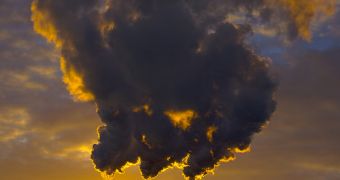Media reports from China say that, in an attempt to solve the ongoing air pollution crisis, the country's high officials have decided to ask provinces, municipalities and autonomous regions to roll up their sleeves and get to work reducing air concentrations of harmful particles and compounds.
This past Tuesday, the country's Ministry of Environmental Protection stated that the city of Beijing, the Tianjin municipality and the Hebei Province must all make efforts to cut air concentrations of PM2.5 by as much as 25% annually.
According to Eco-Business, Shanghai, Jiangsu, Zhejiang, Shandong and Shanxi were set a target to reduce PM2.5 concentrations by 20% on a yearly basis.
Guangdong and Chongqing, and the Inner Mongolia Autonomous Region must focus on cutting air concentrations of said pollutant by an annual 15% and 10%, respectively.
Due to the fact that local air quality in the Hainan and the Yunnan provinces, and in the Tibet Autonomous Region is not all that bad, the Chinese Ministry of Environmental Protection decided that no pollution reduction targets must be set for these parts of the country.
However, high officials stressed that all these three areas are to continue improving on their ecological footprint, and not rest on their laurels.
The provinces, municipalities and autonomous regions are expected to implement measures such as cutting down on the local use of coal, upgrading or eliminating outdated industry capacity, and come up with a better way to regulate the environmental impact of heating boilers, vehicles and dust.
They must also set themselves specific goals for each year, and issue reports detailing the measures that they plan to implement in order to achieve them.
As reported on several occasions, PM2.5 are fine particles measuring less than 2.5 micrometers in diameter. According to a report issued by the World Health Organization in October 2013, these particles can cause people to become sick with cancer.
“After thoroughly reviewing the latest available scientific literature, the world's leading experts convened by the IARC [International Agency for Research on Cancer] Monographs Programme concluded that there is sufficient evidence that exposure to outdoor air pollution causes lung cancer. They also noted a positive association with an increased risk of bladder cancer,” the organization said at that time.
“Particulate matter, a major component of outdoor air pollution, was evaluated separately and was also classified as carcinogenic to humans,” it added.

 14 DAY TRIAL //
14 DAY TRIAL //